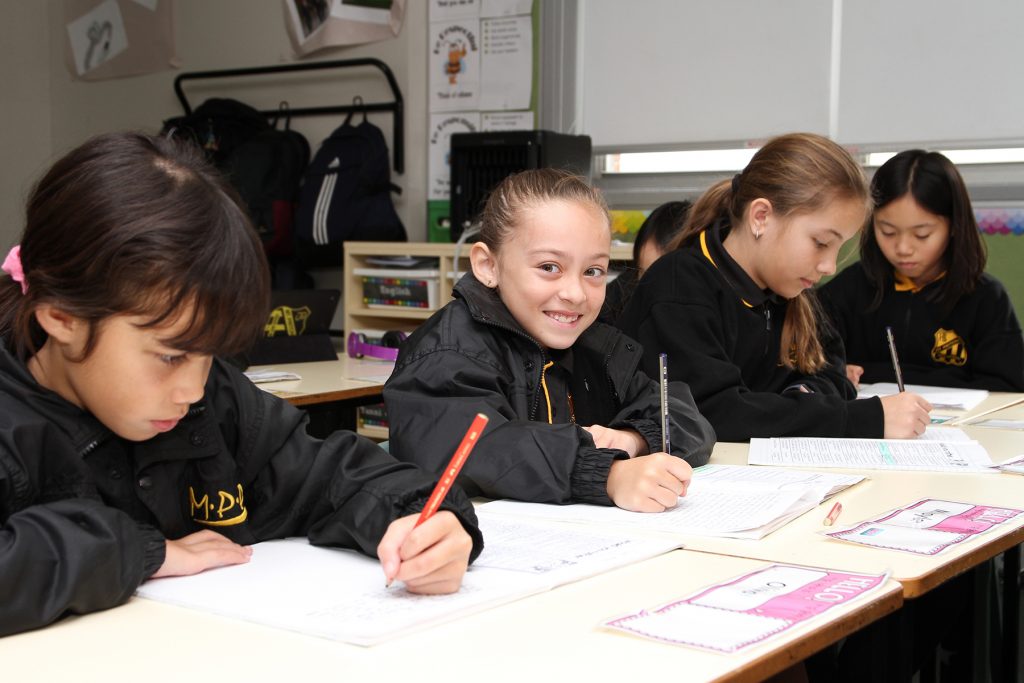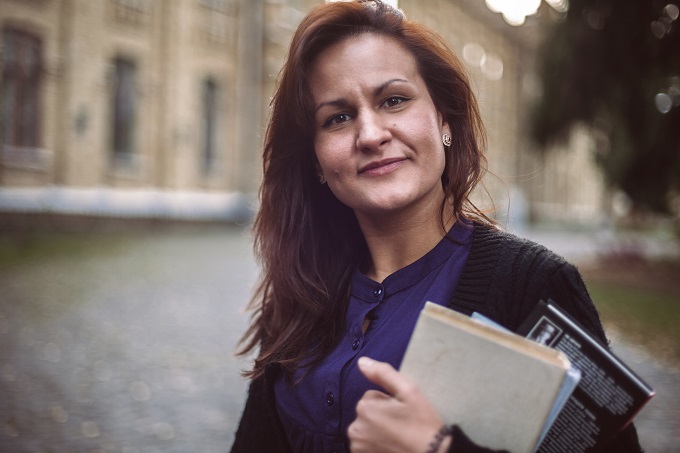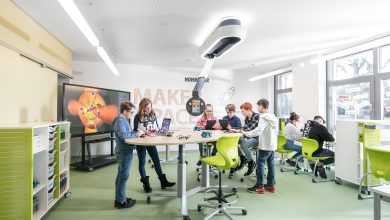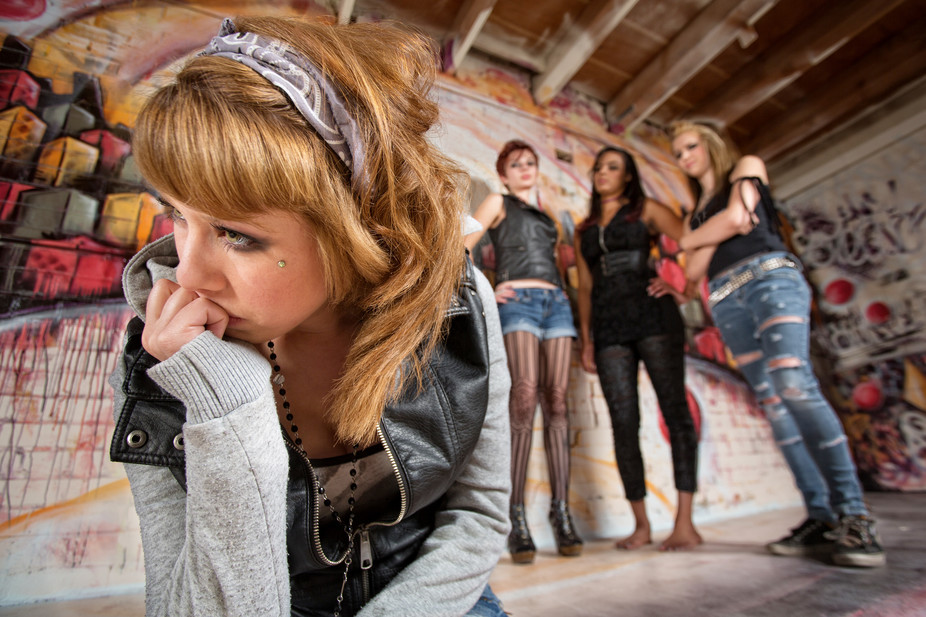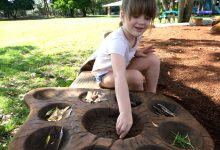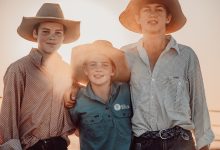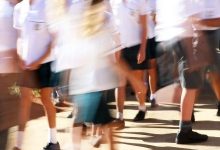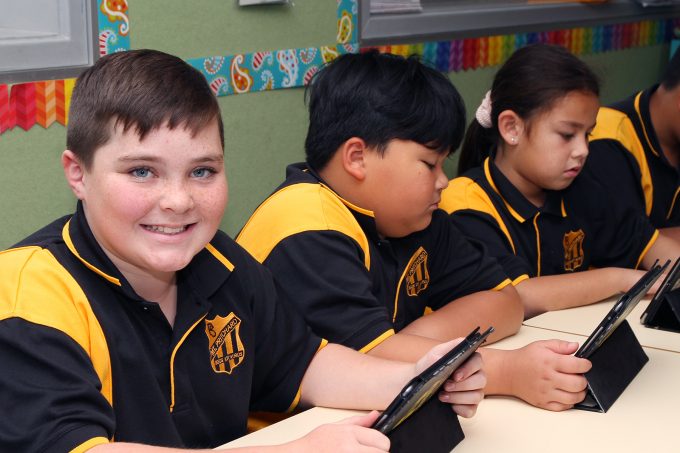
The roll out of the 2018-2022 Department of Education Strategic Plan presented many questions for discussion around what we did as a school to ensure that ‘every student is known, valued and cared for in our school’.
This is a story from our Term 3 issue. Check out the full version here.
It presented a challenge at a very significant time as we were evaluating the previous school plan and had commenced work on developing the 2018-2020 school plan. The school leadership team reviewed the existing practices and processes with staff in order to improve our current approach to wellbeing. As a school community, we developed strategic directions that reflected the philosophy of ‘Goal 2 – Strong Connected Learning Community’: To create successful learners through strengthening whole school well-being practices and establishing productive community partnerships and active future-focused learners to empower students with the skills, values and attitudes necessary to become creative and responsible future focused learners.
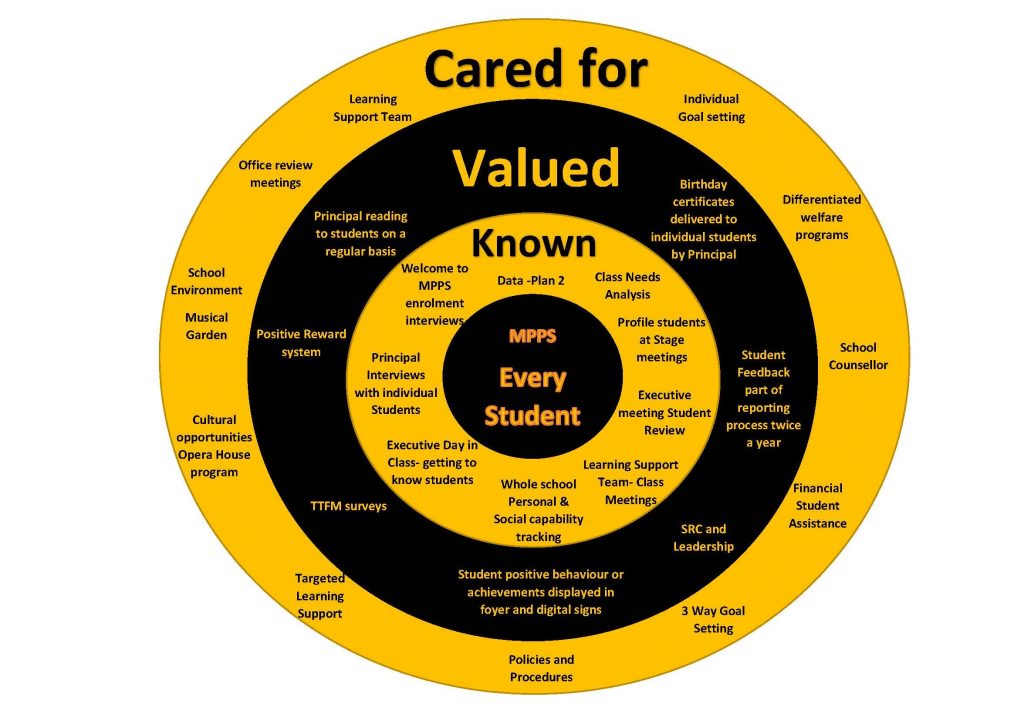
Everyone belongs
We have established a whole school focus on developing the personal and social capability skills that underpin our curriculum, using the general capabilities continuums to help track students and provide opportunities to develop the personal capabilities of self-awareness, self-management, social awareness and social management.
In our culturally diverse community, establishing a sense of value and belonging has been a priority. Not only celebrating days such as Harmony Day and community fun days but also explicitly teaching our students about other cultures and exploring the similarities and differences between us. Across the school in 2019, we have established a number of ways to ensure students are known beyond their academic ability. This whole school approach has resulted in significant reduction of incidents deemed as bullying.
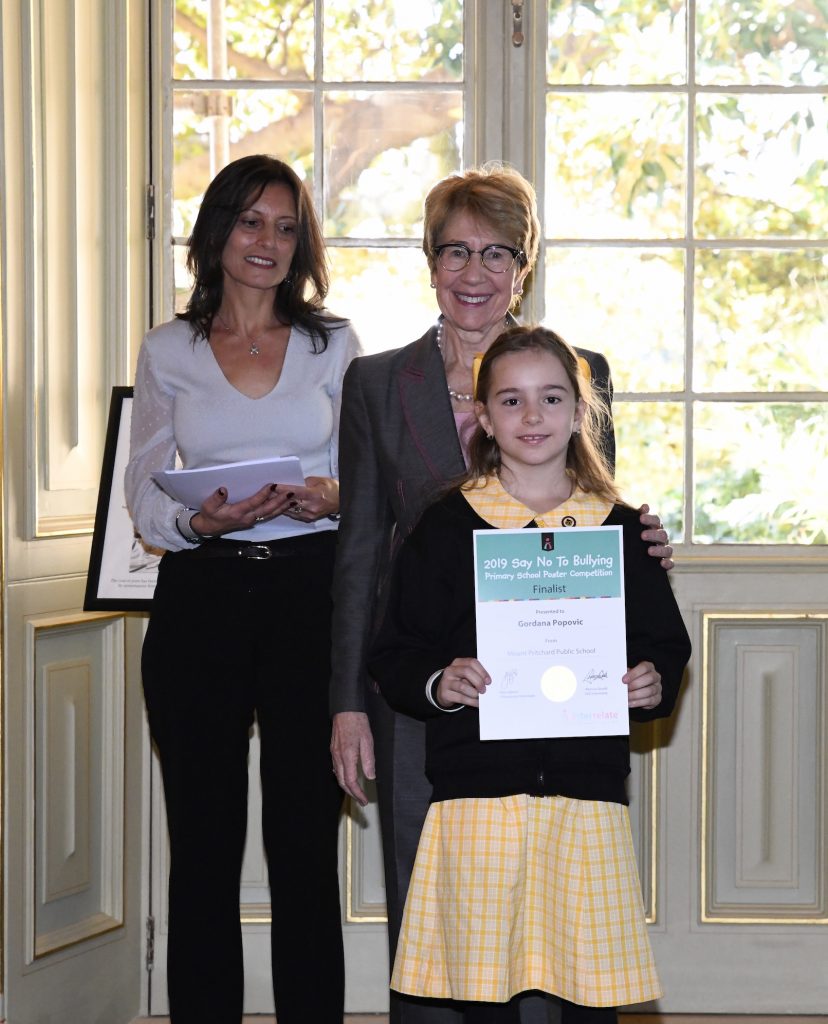
Establishing a growth mindset
In March last year, our leadership team attended the Future Schools conference in Melbourne. A statement made by Dan Haesler around ‘connectedness to school being one of the leading predictors of mental health in adult life’ sparked in us a need to find ways to strength this connection for our students.
We set out to ask students across Years 2-6 if they could name two adults in the school who believed they would be successful. The results showed 44 percent of students could identify two adults who cared about them and their learning. In mid-2017, our school engaged Dan Haesler and Tim Perkins (Cut Through Coaching) to work with our staff on the idea of ‘growth mindset’ and building students’ connection with school. This started a whole school conversation about how we support our students to become resilient, flexible and adaptable learners.
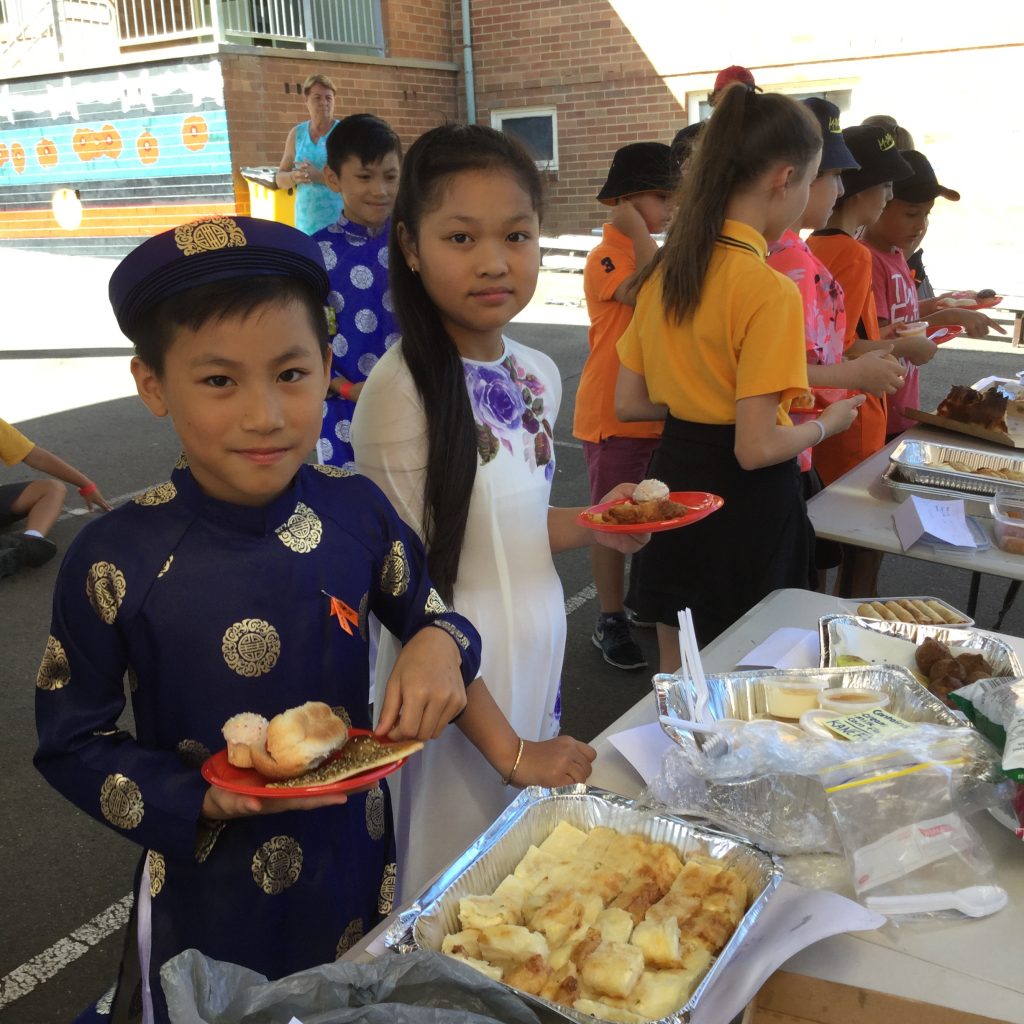
For staff, it created an awareness of how we give feedback to students and initiated a shift in moving from praise-based feedback to feedback that provided students with the know-how to improve both in learning and in social situations. It also meant staff were having open and transparent conversations about mindset, wellbeing and belonging. Revisiting our student survey six months on results indicated 92 percent responded positively to the same question.
Be kind, lend a hand and the National Day of Action
In the middle of this journey, we were approached by Interrelate to record a song ‘Be Kind, Lend a Hand’, written by Mrs Hurley, wife of NSW governor and soon-to-be governor general of Australia.
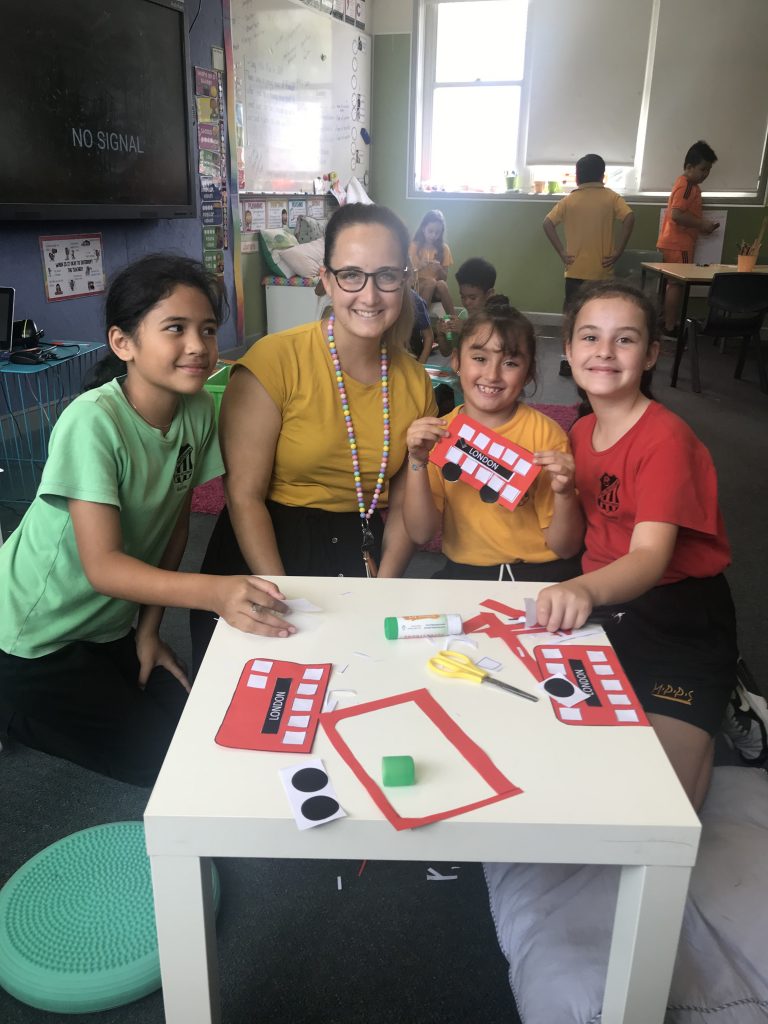
We chose to take part because of our culturally diverse school community and by taking part in activities that promote kindness and respect, we are able to engender a positive and respectful culture within the school. We then worked to use the video to launch the annual national poster competition coincide with the National Day of Action Against Bullying (NDAAB). This poster competition aims to help teachers engage their students in the concepts of positive and respectful relationships.
These efforts were timely in supporting our message of every student is known, valued and cared for and gave us an avenue for conversations around cultural diversity, respect and acceptance.
